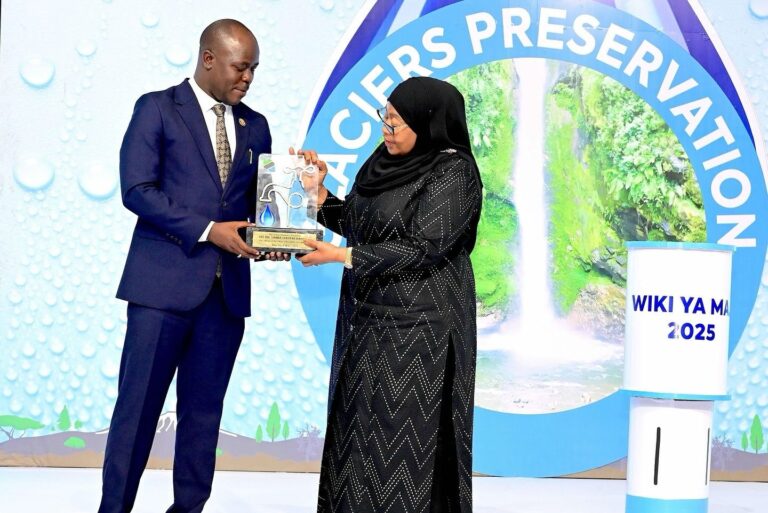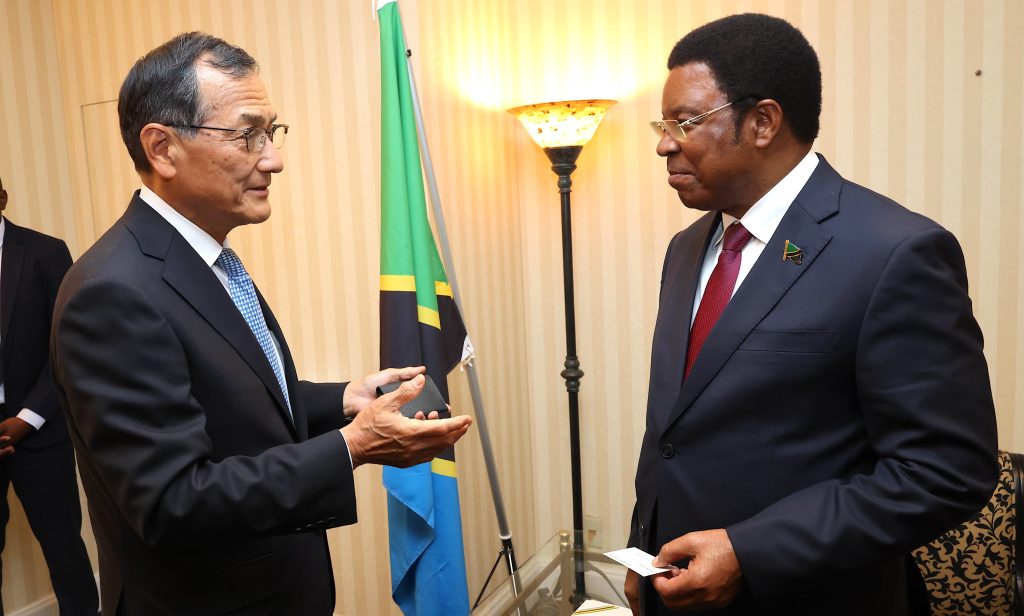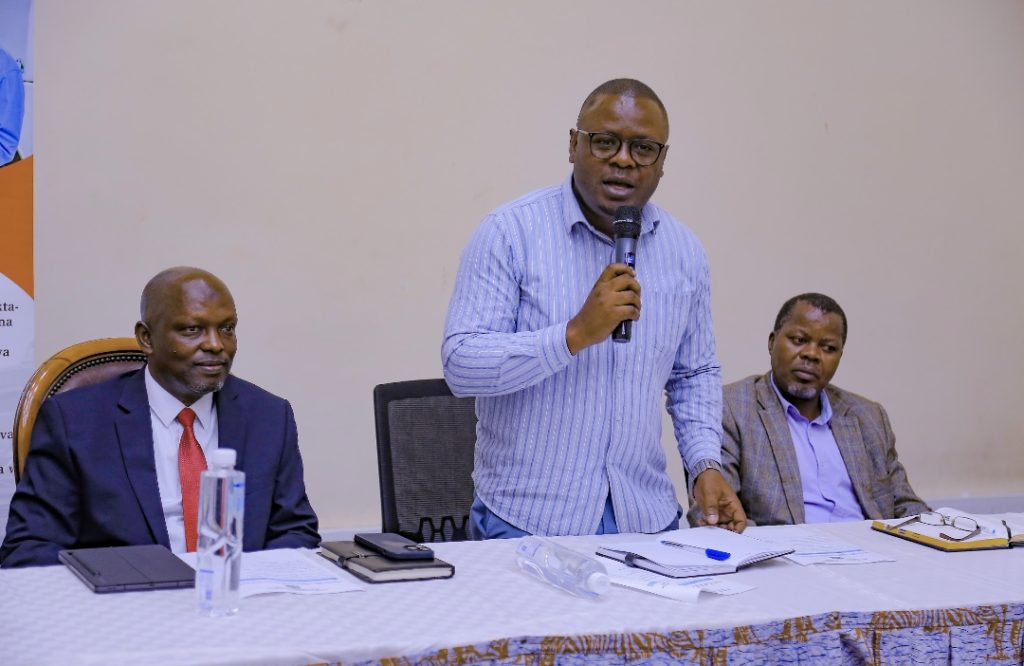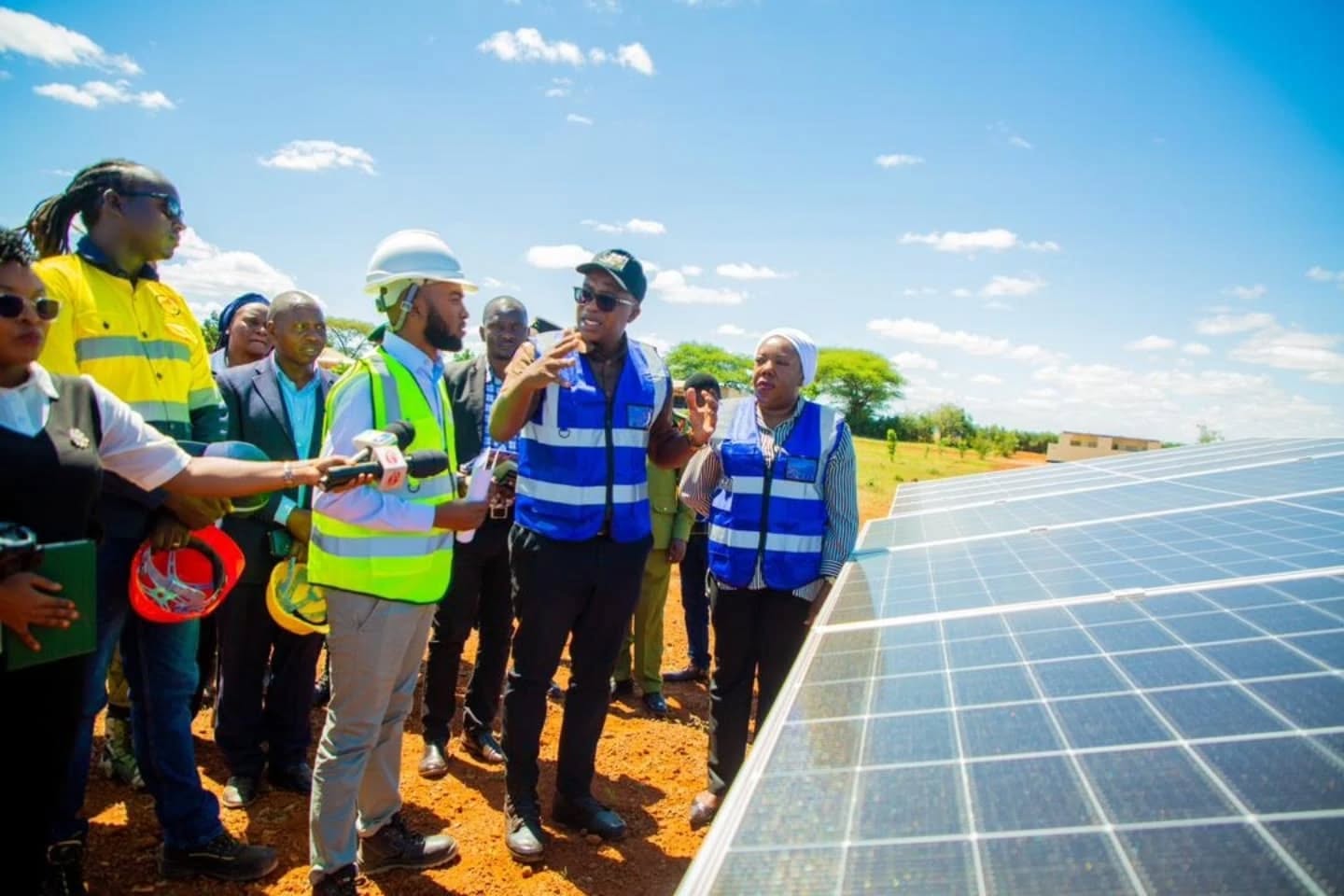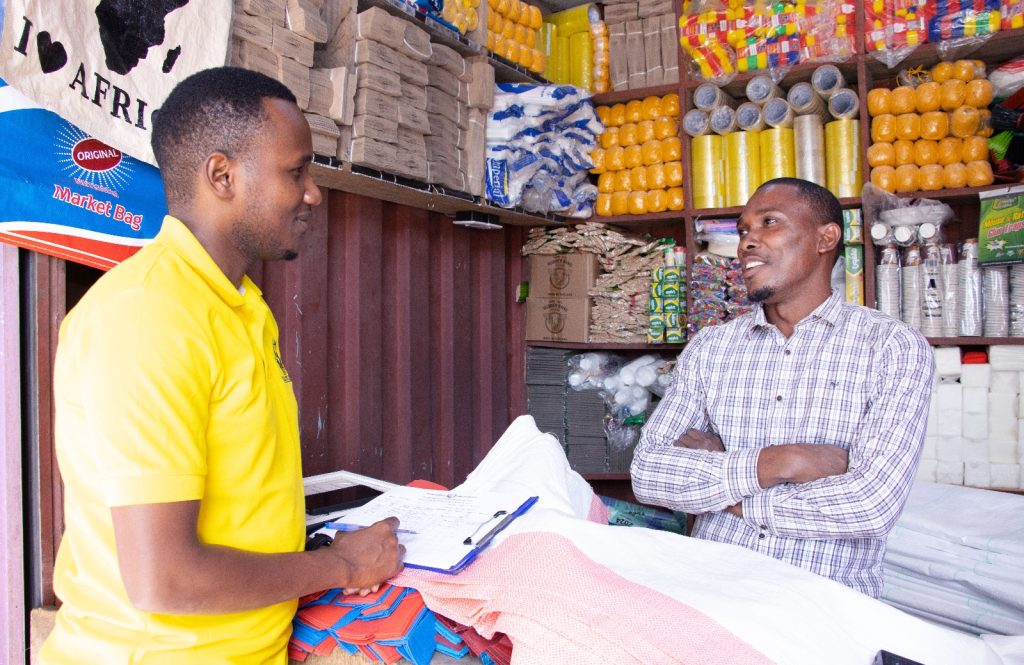Dar es Salaam. President Samia Suluhu Hassan has lauded the ministry of Water for its performance in expanding access to clean and safe water across Tanzania while directing the government to accelerate efforts towards establishing a National Water Grid.
Speaking at the conclusion of Water Week and the launch of the revised National Water Policy over the weekend, President Samia said water is key to livelihoods, economic growth, and stability.
She noted that rural water coverage has reached 83 per cent, just short of the 2020-2025 government target, while urban supply now stands at 95 per cent.
However, she called for continued improvements to ensure sustainable water supply for all.
“The government remains committed to implementing sustainable water projects that improve service delivery and protect water sources,” she said.
The president also warned of emerging challenges, including climate change and global political shifts, which she said could impact food security and national water strategies.
She urged citizens to take an active role in protecting water sources and infrastructure.
As part of the government’s broader strategy, she directed the ministry of Water to expedite plans for a National Water Grid, similar to the National Electricity Grid.
The proposed system will create collection hubs from various sources across the country, facilitating efficient distribution to all regions.
The president further called for increased investment in rainwater harvesting.
“Every drop of water is valuable. We must maximise our expertise and modern technologies to make rainwater harvesting more efficient,” she said.
Background on Tanzania’s water sector
Tanzania’s water sector has undergone significant transformations over the past two decades, with a strong focus on expanding access to clean and safe water for both rural and urban populations.
The National Water Policy, first introduced in 2002 and revised in 2025, provides the framework for water resource management, infrastructure development, and sustainable service delivery.
Despite notable progress, challenges remain. Climate change, population growth, and rapid urbanisation have increased pressure on water resources.
Tanzania’s major water sources, including Lakes Victoria, Tanganyika, and Nyasa, along with the Rufiji, Ruvuma, and Pangani river basins, continue to experience environmental and human-induced threats such as deforestation, pollution, and encroachment.
The government has responded by prioritising large-scale water projects, including the construction of new dams, boreholes, and pipeline networks.
In urban areas, the Dar es Salaam Water and Sewerage Authority (DAWASA) and other regional utilities have implemented initiatives to improve supply reliability.
In rural areas, the Rural Water Supply and Sanitation Agency (RUWASA) has played a critical role in extending water services to remote communities.
However, issues such as poor maintenance of infrastructure, financing gaps, and disparities in service delivery between regions persist.
The proposed National Water Grid aims to address these challenges by establishing an interconnected system that ensures equitable distribution of water across the country.
If successfully implemented, it could significantly enhance Tanzania’s resilience to water shortages, improve agricultural productivity, and support industrial growth.
Expansion of water infrastructure
President Samia reaffirmed the government’s commitment to water accessibility, stating that while progress has been made, efforts must continue to ensure long-term sustainability.
She called for vigilance against threats posed by climate change and underscored the need for policies that safeguard Tanzania’s water resources for future generations.

